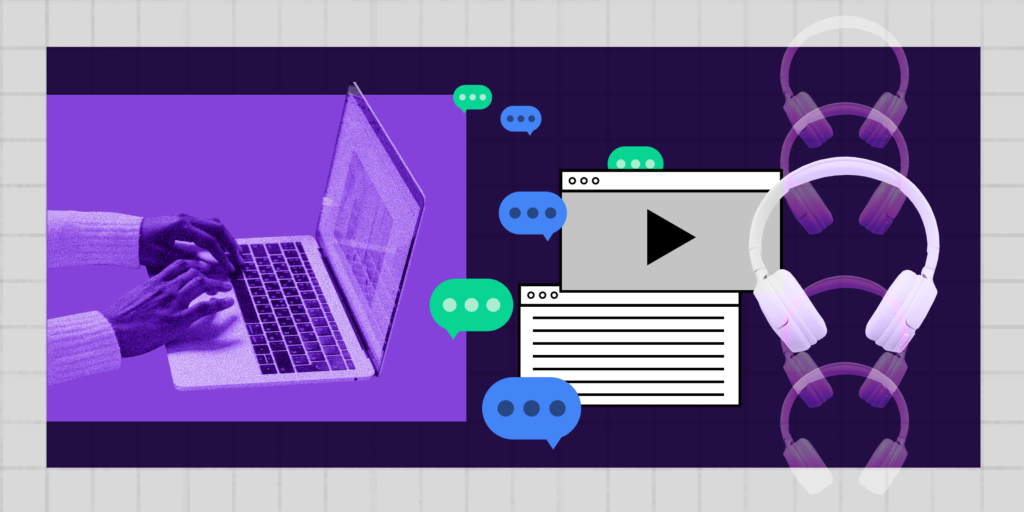Slower mornings. No grading to be done. Fewer student emails. You’re not dreaming—the spring 2023 semester has come to a close. We hope you can take the next few months to rejuvenate—and, with our summer reading list, perhaps find a little inspiration before the fall. We’ve rounded up ten books written by incredible female scholars to help you leave a lasting impact on both your students and institution in the term ahead.
1. Unraveling Faculty Burnout: Pathways to Reckoning and Renewal (2022)
The last few years have taken a disproportionate toll on women when it comes to stress and exhaustion. Rebecca Pope-Ruark, Associate Professor of English at Elon University, offers tangible advice to curb feelings of mental and physical exhaustion for those in academia today. Drawing upon stories collected from female scholars across various career stages as well as her own experiences, Pope-Ruark leaves readers with four pillars to cultivate greater resilience: purpose, compassion, connection and balance. No matter your identity, get a first-hand look at how burnout shapes academic perceptions and performance and what you can do to support yourself and your female colleagues.
2. Inclusive Teaching: Strategies for Promoting Equity in the College Classroom (2022)
Many students may feel like guests as opposed to valued participants in your classroom. So how do you ensure all students feel welcome and heard? Viji Sathy, Associate Dean of Evaluation and Assessment, and Kelly Hogan, Associate Dean of Instructional Innovation at the University of North Carolina at Chapel Hill, offer ways to gear class discussions, group work and office hours around student needs. With a special emphasis on course structure, these two equity-minded scholars engage in a meaningful discussion on how to address privilege and implicit bias to make the classroom a welcoming environment for all students. Watch our on-demand talk with both authors for more inclusive and empowering teaching tips.
3. Feedback (and Other Dirty Words): Why We Fear It, How to Fix It (2019)
Feedback. If the word makes you squirm, you’re not alone. Many associate the word with bias, politics and perception. But as this book makes clear, feedback can be a powerful tool to improve communication and performance. Authors M. Tamra Chandler, Founder and CEO of PeopleFirm LLC, and Laura Grealish, Senior Manager, Performance Management, Feedback and Exec Teams at EY, uncover why feedback got a bad rap in the first place. They also share the “three Fs” framework (focused, fair and frequent) to guide you when delivering your next round of feedback. You’ll leave with formulas you can apply in your own professional life as well as the opportunity to practice giving effective critiques through chapter exercises.
4. Powerful Teaching: Unleash the Science of Learning (2019)
Want to teach smarter next term? Dr. Pooja Agarwal, celebrated cognitive scientist, and Patrice M. Bain, a veteran K-12 teacher, are determined to help you apply science-backed teaching tools to any course (without the additional time or financial commitment). Their practical resource is packed with scientific knowledge and evidence-based strategies to help students see real value in their learning. The authors also present step-by-step guidance on how to effectively assess learners and tips to enhance metacognition through feedback. Hear from Dr. Agarwal directly in our on-demand talk for proven ways to raise achievement.
5. Native Presence and Sovereignty in College (2022)
Cultural, economic and social barriers prevent many students from earning a degree. Nowhere is this more true than for Indigenous students who face racial erasure, assimilation and systemic inequities. Amanda Tachine, Assistant Professor of Higher & Postsecondary Education at Arizona State University, details the experiences of 10 Navajo teenagers as they enter their first year of college. She exposes the ‘systemic monsters’ (injustices) that these students face when transitioning from high school to higher ed. With an emphasis on race, finances and belonging, among other factors, Tachine outlines how professors and administrators alike can do a better job of supporting diverse students.
6. Hacking Assessment: 10 Ways to Go Gradeless in a Traditional Grades School (2015)
“Does this count for marks?” If that’s a question you’ve heard too many times to count, then this book is for you. Starr Sackstein, Educational Consultant and Instructional Coach, offers an assessment alternative to help students thrive: going 100 percent gradeless. Sackstein offers simple techniques and a step-by-step action plan to do away with grades in favor of making learning more transparent and meaningful. She sheds light on how swapping summative for formative assessments can be a good place to start and provides testing ideas crowdsourced from educators worldwide.
7. Teach Students How to Learn (2015)
It’s no secret that students often resort to highlighting chapters and rereading notes when studying for exams. But as Saundra McGuire—Director Emerita of the Center for Academic Success at Louisiana State University—reveals in her book, the majority of students aren’t equipped with the necessary study skills to thrive in higher ed. In this essential handbook, McGuire presents a five-step study cycle to guide students through the process of taking effective notes and assessing their own understanding outside of class. McGuire also offers ways to help students tap into a growth mindset—such as by running several smaller assessments versus the single high-stakes exam. Watch our on-demand talk for McGuire’s top strategies to fuel active learning and academic success.
8. The Hidden Curriculum: First Generation Students at Legacy Universities (2021)
Being the first in your family to navigate college is no easy feat. And then there’s demystifying the hidden curriculum—the unwritten and often unintended lessons that students are expected to understand. Rachel Gable, Director of Institutional Effectiveness at Virginia Commonwealth University, unveils the hurdles first-generation students face when attending elite colleges like Harvard and Georgetown. In this eye opening read, Gable advocates for policy reform to make education more equitable and inclusive for this student population.
9. Paying the Price: College Costs, Financial Aid, and the Betrayal of the American Dream (2017)
The path from academia to the workplace isn’t as linear as it may seem. A key issue preventing students from completing their studies? The heaps of expenses associated with tuition, housing and food, among other factors. Sara Goldrick-Rab, Founding Director of The Hope Center for College, Community, and Justice at Temple University, follows the socio-economic experiences of more than 3,000 students in the U.S.—ranging from juggling several jobs, skipping meals and even dropping classes. She presents a number of improvements to fix the broken financial aid application process, with an end goal of getting students to graduation day—not with heaps of debt, but with a well-earned degree.
10. Uncommon Sense Teaching: Practical Insights in Brain Science to Help Students Learn (2021)
A good portion of your lecture will likely be forgotten as soon as students exit your classroom. The good news? There’s a workaround to getting information to stick long-term. Barbara Oakley, Professor of Engineering at Oakland University, exposes the neurological conditions in which effective learning occurs. With tangible tools for any educator (or parent) looking to enhance their teaching, Oakley shares how to improve education through practices steeped in cognitive science. Watch our on-demand talk where Oakley uncovers how to deepen learning and form ‘neural connections.’


